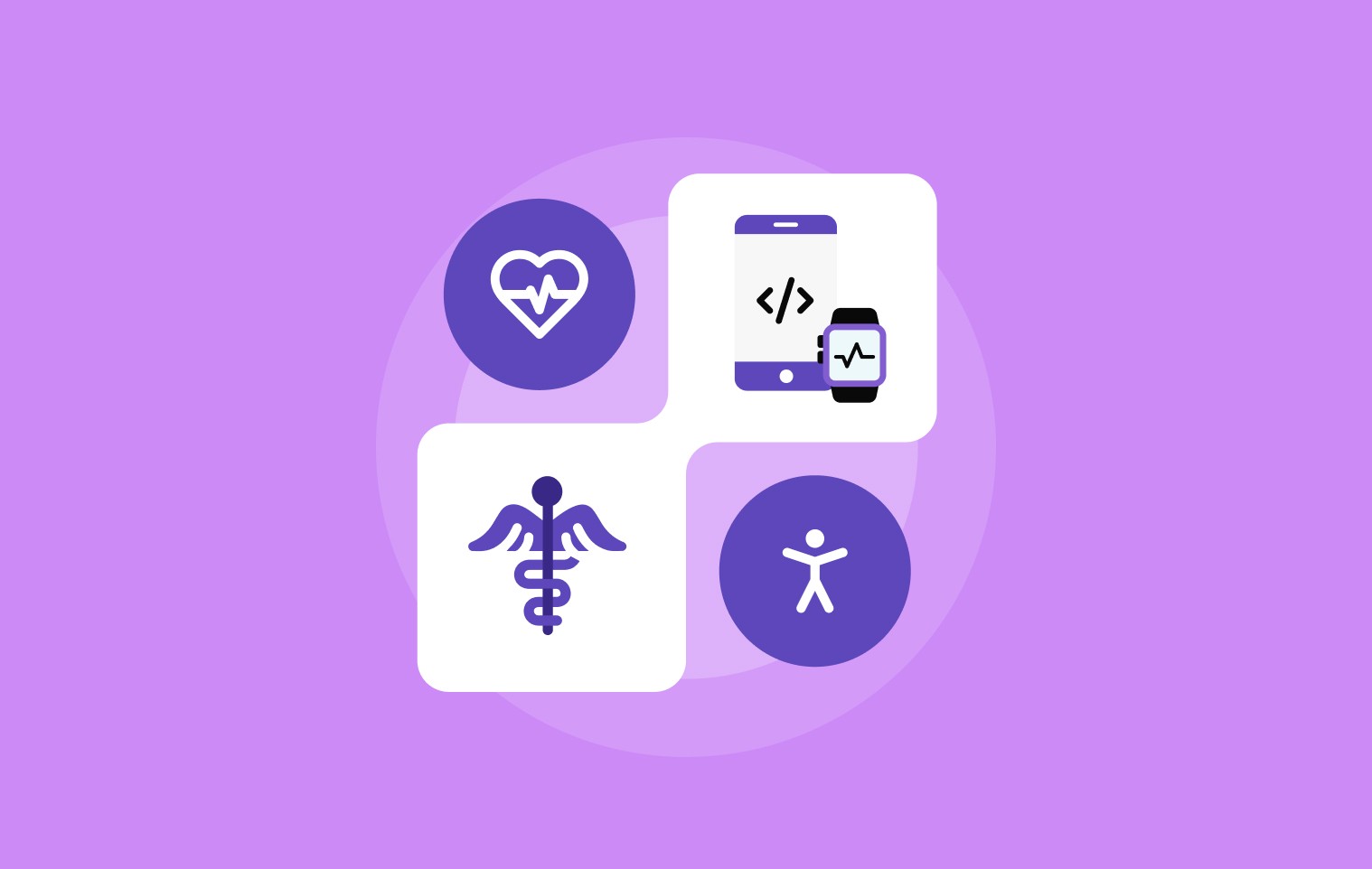The Intersection of Health & Technology
Health
Technology
Research
Summary
This article explores the profound impact of technology on healthcare through innovations like telemedicine, wearable tech, big data analytics, AI and ML, robotics, 3D printing, and nanotechnology. These technologies have transformed patient care by improving diagnostics, treatment personalization, and surgical outcomes. However, they also bring challenges such as privacy concerns, reliability of tech-based diagnoses, and high costs.
Key insights:
Telemedicine is rapidly growing, making healthcare more accessible through virtual consultations.
Wearable Tech enhances chronic disease management and preventive health by monitoring vital signs and detecting potential health issues early.
Big Data Analytics revolutionize treatment plans by analyzing large datasets to uncover unique patient insights.
AI and ML are pivotal in refining diagnoses, particularly for complex diseases like cancer.
Robotics advance surgical procedures, providing precision and reducing recovery times in minimally invasive surgeries.
3D Printing significantly cuts costs and customization times for prosthetics and implants.
Nanotechnology improves drug delivery systems for targeted treatment, increasing effectiveness while reducing side effects.
Introduction
It is no secret that technology has made incredible advancements in recent years, and one of the areas that has seen significant changes is healthcare. With the integration of technology in healthcare, we've seen the development of innovative solutions that have revolutionized the industry. However, with these innovations come challenges that need to be addressed.
In this article, we will explore the intersection of tech and healthcare, the innovations that have come with it, the challenges that need to be addressed, and what the future holds.
Innovations in Tech & Healthcare
Telemedicine and virtual consultations Telemedicine has made it easier for patients to consult with doctors without having to physically visit a hospital or clinic. With the use of video conferencing technology, patients can consult with doctors from the comfort of their own homes. According to a report by Mordor Intelligence, the telemedicine market is expected to grow at a CAGR of 23.5% from 2021 to 2026.
Wearables
Wearable technology has become an increasingly important part of healthcare in recent years. Devices like fitness trackers, smartwatches, and medical monitoring devices can provide valuable insights into our health and help us manage chronic conditions more effectively. They can track vital signs, monitor sleep patterns, and even detect potential health issues before they become serious.
One study found that wearables helped reduce hospital readmissions by 50%, indicating the potential for these devices to improve patient outcomes and reduce healthcare costs. With the global market for wearables projected to reach $87 billion by 2023, it is clear that these devices are here to stay and will continue to play a significant role in shaping the future of healthcare.
Big Data Analytics
The use of big data analytics in healthcare has revolutionized the way we approach patient care. By analyzing vast amounts of data, we can identify patterns and insights that would be impossible to detect through traditional means. This has led to the development of personalized treatments and disease management plans that can greatly improve patient outcomes.
For example, big data analytics has been used to predict and prevent hospital readmissions, identify patients at risk for certain conditions, and optimize clinical workflows. The global healthcare analytics market is expected to reach $84.2 billion by 2027, indicating the growing importance of data-driven healthcare.
AI and ML for Medical Diagnosis
Artificial intelligence (AI) and machine learning (ML) are rapidly transforming the field of medical diagnosis. By analyzing vast amounts of medical data, these technologies can help doctors make more accurate and timely diagnoses. AI and ML-powered diagnostic tools have already been developed for a range of diseases, including cancer and heart disease, and have shown promising results.
According to a report by Accenture, the AI healthcare market is expected to grow from $600 million in 2014 to $7.6 billion by 2023, indicating the huge potential of these technologies in the healthcare industry.
Robotics
Robotics has emerged as a powerful tool in the field of healthcare, enabling the development of innovative solutions that improve patient outcomes. In particular, surgical robotics has revolutionized the way complex procedures are performed, allowing for greater precision and improved recovery times.
For example, robotic-assisted surgery has been used to perform prostatectomies, hysterectomies, and other procedures with great success, reducing blood loss, pain, and hospital stays.
According to a report by MarketsandMarkets, the global medical robotics market is projected to reach $12.7 billion by 2025, driven by the increasing demand for minimally invasive surgery and the rising incidence of chronic diseases.
3D Printing for Healthcare Apps
Advancements in technology have revolutionized healthcare in many ways, including the use of 3D printing. This technology has been applied in healthcare to create a range of medical devices such as prosthetics, implants, and surgical models.
By using 3D printing, healthcare providers can create customized medical devices with higher accuracy and speed. Additionally, this technology has led to faster production times and a significant reduction in costs compared to traditional manufacturing methods.
With the increasing demand for personalized and customized medical devices, the use of 3D printing is expected to become more widespread, leading to further advancements in the field of healthcare.
Nanotechnology
Nanotechnology has been applied in medicine to develop drugs and medical devices that can target specific cells or tissues. This has led to more targeted and effective treatments. A study by Zion Market Research found that the global nanomedicine market is expected to reach $392.8 billion by 2025.
Challenges
Privacy Concerns
As more personal health data is collected and stored electronically, there is an increased risk of data breaches and cyber attacks. This has led to concerns about the privacy and security of personal health data. According to a report by Accenture, 26% of healthcare organizations have experienced a data breach in the past two years.
Reliability and Accuracy
While technology-based medical diagnoses have shown promise, there are concerns about their reliability and accuracy. A study published in the Journal of the American Medical Association found that diagnostic AI systems for certain conditions may not perform as well as human physicians. The study found that AI systems may be less accurate when diagnosing less common conditions or in cases where there are multiple conditions present.
Cost
While innovative technology can improve healthcare, the cost of implementing these new systems can be a challenge. Hospitals and healthcare organizations may not have the budget to invest in new technology, or the technology may require additional staff training or maintenance costs.
Future of Tech and Healthcare
Despite the challenges, the intersection of tech and healthcare has the potential to transform the industry. With continued advancements in technology, we can expect to see more personalized treatments, improved patient outcomes, and greater efficiency in healthcare delivery.
As we've seen, technology has brought about significant innovations in healthcare, including telemedicine, wearables, big data analytics, AI, robotics, 3D printing, and nanotechnology. However, with these advancements come challenges, including privacy and security concerns, reliability and accuracy of technology-based diagnoses, and the cost of implementing new technology.
By addressing these challenges, we can continue to move forward in creating a more efficient and effective healthcare system. As a web and mobile app development agency that specializes in Flutter and React development, Walturn is excited about the future of tech and healthcare. We have worked with companies such as NYU and Mubadala, and we look forward to working with more healthcare organizations to bring about positive change.















































